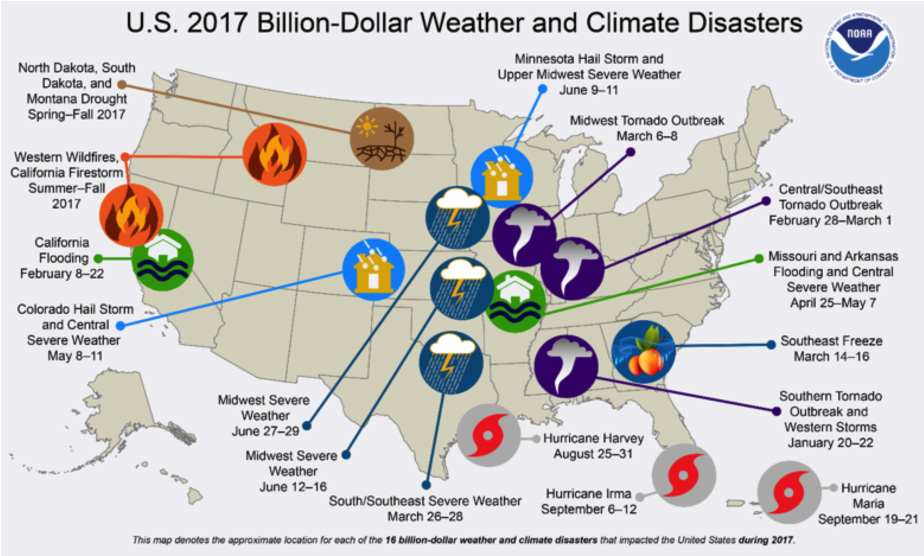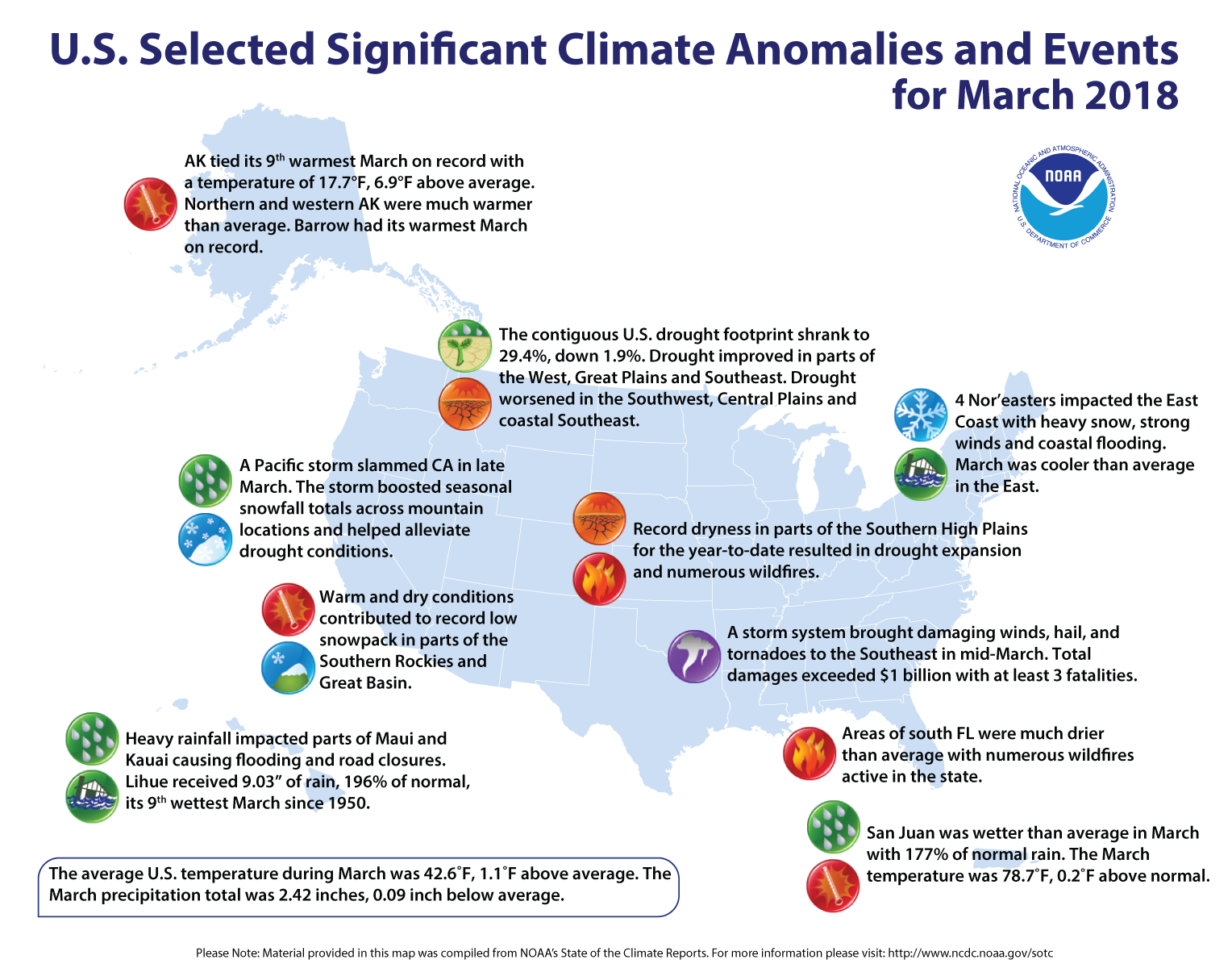Advancing the Study of Extreme Events

Public Health Research and Climate Science
In the article “Observing Mother Nature: A look at severe weather events in a changing climate,” NOAA NCEI scientist Stephanie Herring provides an overview of event attribution science and its new directions. Climate scientists have adopted methods of research used in public health to understand weather events and climate. At its most basic level, the public health model compares current conditions with how they might have been. For instance, what if the patient had not smoked?
"By comparing cancer risk in a cohort of patients who smoke to cancer rates in a control group of nonsmokers, researchers can determine how much smoking increases the risk of lung cancer,” Herring writes in the April/May 2018 issue of The Actuary magazine, a publication of the Society of Actuaries. For climate studies, researchers are looking at conditions today compared to historical, pre-industrial conditions. “By comparing the probability of the event in the existing world with the world that might have been,” Herring writes, “the change-in-event probability can be quantified."
Results Open New Pathways
In less than a decade, research has been conducted on a range of extreme events that includes precipitation, droughts, tropical systems, wildfires, winter storms, as well as heat waves. The results were initially published in a special peer-reviewed supplement, "Explaining Extreme Events of 2016 From A Climate Perspective," edited by Herring for the Bulletin of the American Meteorological Society.Now, researchers are beginning to ask new questions, particularly about impacts from events. Impacts from extremes are determined not just by the events themselves but also by the vulnerability of the people and assets exposed to them. Impacts attribution studies are the next step in the field—focusing on circumstances that could directly impact people and places.
For example, a European heat wave in 2003 became the first such study. In other studies, impacts such as insurance claims and hospital admissions have also been and continue to be explored. A related article about the relationship between human health and climate is also published in the same issue of The Actuary by Jesse Bell, a scientist with the Cooperative Institute for Climate and Satellites–North Carolina, a research partner of NOAA's NCEI. Edited for WeatherNation by Meteorologist Mace Michaels